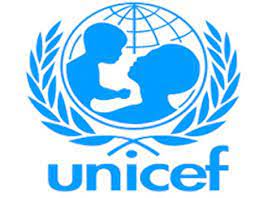
The United Nations Children’s Fund and the Sokoto State Government have reaffirmed their joint commitment to eradicate the poliovirus in Nigeria’s northwest region, pledging renewed efforts to reach every unvaccinated child.
This is as the world marks World Polio Day 2025 on Friday.
Speaking during the commemoration in Sokoto on Friday, Michael Juma, UNICEF Chief of Field Office for Sokoto, Kebbi, and Zamfara States, said the agency and its partners have made “tremendous progress” in immunization coverage but must “leave no child behind.”
“We’ve just completed an integrated polio, measles, rubella, and HPV campaign, reaching about 5.3 million children across the three states that’s a remarkable 120 percent coverage,” Juma said.
He commended the state governments of Sokoto, Kebbi, and Zamfara for their “strong political commitment and active surveillance systems,” noting that deputy governors chair the state polio task forces to ensure swift action against any outbreak threat.
Juma also appealed to the media to strengthen social mobilization and counter misinformation, emphasizing that accurate reporting “can help generate public trust and ensure every child under five receives life-saving vaccines.”
To cap the commemoration, UNICEF organized a youth advocacy football match in Sokoto to raise awareness about the importance of immunization, featuring polio survivors sharing their experiences. “It’s a reminder that polio is preventable but only if we act together,” Juma added.
In his address, Abubakar Faruku Wurno, Sokoto State Commissioner for Health, described the occasion as “a day of reflection and renewed determination” to keep the state polio-free.
Wurno noted that 19 out of 23 local government areas achieved over 90 percent coverage in the recent campaign, describing them as “passed,” while urging four underperforming LGAs, which include Bodinga, Shagari, Sokoto South, and Wamakko, to “redouble their efforts.”
He warned, however, that Sokoto’s proximity to border communities still poses risks of cross-border transmission, calling for “continuous vigilance, effective surveillance, and sustained routine immunization.”
To strengthen health manpower, the commissioner revealed that the ministry has deployed 209 qualified midwives to 109 primary healthcare centers across the state, alongside enforcing a two-year rural posting policy for new health workers.



